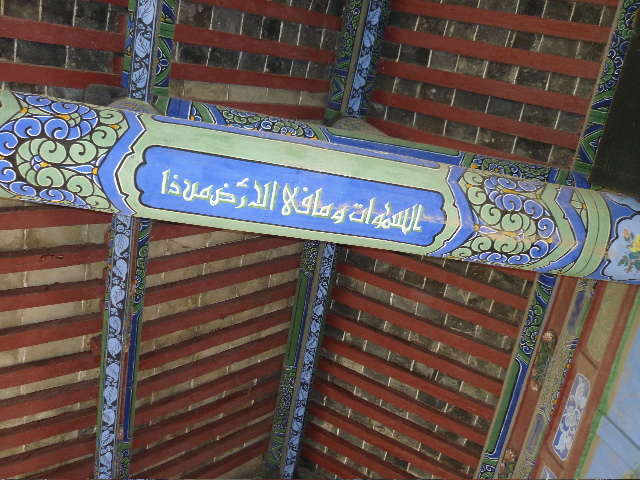Han-Uighur solidarity amid Xinjiang violence
As another deadly clash is reported from Xinjiang, Shanghai journalist Yang Haipeng has started donning a Uighur skullcap at security checkpoints as a gesture of solidarity.
As another deadly clash is reported from Xinjiang, Shanghai journalist Yang Haipeng has started donning a Uighur skullcap at security checkpoints as a gesture of solidarity.
In a Capitol Hill ceremony, Uighur exile leaders commemorated the founding of an independent East Turkestan Republic on Nov. 12 in both 1933 and 1944.
Blasts at the Shanxi Communist Party headquarters left one dead—days after dissident Uighur leader Ilham Tohti said his family was threatened by security agents.
Police are said to be seeking two ethnic Uighurs in the apparent suicide attack on Beijing's Tiananmen Square, with exiled Uighur leaders warning of a "fierce crackdown."
Security forces in China’s far western Xinjiang region shot and killed at least 12 men and wounded 20 others during a raid on what authorities described as a “terrorist facility.”
Courts in China’s far western province of Xinjiang sentenced 11 ethnic Uighurs to up to six years in prison for promoting racial hatred and religious extremism online.
Deadly clashes between Uighurs and Chinese police in Xinjiang came as US Ambassador Gary Locke was visiting the restive province with a trade delegation.
Police in China's Inner Mongolia Autonomous Region blocked an attempted cross-country march by traditional Mongol herders, with police assaulting hundreds in two incidents.
A new pipeline that would link Iran to China via Pakistan, bypassing the strategic Strait of Hormuz, would pass through the insurgent regions of Baluchistan, Kashmir and Xinjiang.
Human rights lawyer Xu Zhiyong, who defends Chinese peasants struggling to keep their lands, proclaims his support for the Tibetans and calls for Han solidarity with their cause.

A top US sportswear company announced that it has dropped a Chinese supplier over concerns that its products were made by forced labor in detention camps in Xinjiang. Reports have mounted that the hundreds of thousands of ethnic Uighurs believed to be held in a fast-expanding system of detention camps are being put to forced labor for Chinese commercial interests. An Associated Press investigation tracked recent shipments from one such detention-camp factory, run by privately-owned Hetian Taida Apparel, to Badger Sportswear of North Carolina. After long denying that the camps exist, Chinese authorities now say they are "vocational training centers" aimed at reducing "extremism." (Photo via Bitter Winter)

With China accused of detaining hundreds of thousands of Uighur Muslims without trial in its western province of Xinjiang, a BBC investigation analyzed satellite data to determine that the detention camp system in the region is rapidly expanding. Reviewing images from the European Space Agency's Sentinel satellite service, the BBC finds at least 40 such facilities across Xinjiang, half built within last two years—with a big thrust of construction just in the past six months. Among the largest is a "massive, highly secure compound" still being built at Dabancheng, about an hour's drive from the provincial capital, Urumqi. It is enclosed within a two kilometer-long exterior wall punctuated by 16 guard towers. (Photo via UNPO)